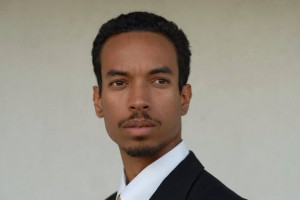 On Sunday, January 18, 2015, two interesting things happened in the history of Republican outreach to the black community in Los Angeles. The first is that, at 3:00 in the afternoon, the libertarian leaning Republican Liberty Caucus held its first meeting in South Los Angeles, (featuring addresses from inner-city figures such as host of Compton Politics Lorenzo Murphy). Then at 6:00, officers were elected to fill seats for the first chapter of the conservative California Republican Assembly ever established to represent Inglewood and South Los Angeles.
On Sunday, January 18, 2015, two interesting things happened in the history of Republican outreach to the black community in Los Angeles. The first is that, at 3:00 in the afternoon, the libertarian leaning Republican Liberty Caucus held its first meeting in South Los Angeles, (featuring addresses from inner-city figures such as host of Compton Politics Lorenzo Murphy). Then at 6:00, officers were elected to fill seats for the first chapter of the conservative California Republican Assembly ever established to represent Inglewood and South Los Angeles.
Neither of these events are earth shattering in their significance in and of themselves. Yet they represent a trend portending the possibility of important realignments of political coalitions in Los Angeles and perhaps California, and that is the bubbling up of a dynamic Republican presence in urban L.A.
It is a slow bubble, to be sure. But there are philosophical harmonies that exist between the African-American community and the Republican Party that, if built upon, can lead to real opportunities for the party to grow. What the Republican Party must understand, however, is that these harmonies exist largely between separate factions of the Republican coalition and between differing segments of the African-American political community. There is no one wing of the Republican Party that, if introduced to the black community at large, can serve as a landing pad for the mainstream of African-Americans (in the inner-city in particular) to pour into, or relate to sufficiently to create a lasting and durable trust. But differing segments of the black community will find great commonality with differing parts of the Republican message, and thus with differing groups within Republican coalition. If rivalry within the party can give way to wisdom in the art of politics, this can be a very positive thing.
Much is made in conservative Republican circles about the social conservatism of African-Americans serving as a bridge to the Republican Party. For some it has been. And for those many in the black community whose values and experiences are rooted in the life and culture of the church, there is great space for common purpose with Christian conservatives who too are concerned with the rising tides of secularism in Los Angeles and California, and who aspire to see a unified church tackle the causes of ministry and revival together. Other Republicans, as well as other African-Americans, will be less enthusiastic about the cause of faith, but will find common purpose, if not on economic policy per se, than in economic relationships built on business enterprises, education and entrepreneurship. Business owners, Republicans linked with the chambers of commerce and conservative entrepreneurs would find many open doors if they sought avenues for economic partnership and education with groups within the urban community struggling to form economic associations and eager to impart young people with entrepreneurial education.
Likewise, there is a great similarity of passion between the activist elements of the urban community, and the Libertarian wing of the party that has focused so much energy on issues related to civil liberties, the criminal justice system and the war on drugs. An allegiance between these groups is possible, if not probable.
The difficulty for the Republican Party lay not so much in establishing these bonds across party, color and regional lines, but rather maintaining its unity of purpose within its own ranks as different groups and different candidates pursue relationships with the urban community in different ways. Secretary of State candidate Pete Peterson made effective strides in building common purpose with inner-city blacks by stressing the importance of civic engagement (a constant concern amongst leaders in the black community where voter turnout is generally very low). Congressional candidate Adam King of the 37th congressional district promoted tax reform aimed at eliminating the income tax burden for the bottom half of income earners. This author, in his own congressional campaign, brought together ministers from the South Bay to South LA to discuss how church coalitions could pave the way for cultural and economic empowerment in the urban community. Different Republican candidates and groups bring different strengths to this potential outreach. But they are all Republican.
There is disagreement within the GOP on many things. But whether one believes in the right to succeed in business without the oppressive barriers of excess regulation, in the right to live from under the shadow of a ubiquitous police presence, or in the right to preach the values of faith in the public square, the emphasis in all cases is on a preference for a society that emphasizes the true freedom of the individual to pursue happiness without the interference of the government. The Republican conversation revolves around how to responsibly protect the liberty of the individual. It is a conversation in which African-Americans should be at the center.

